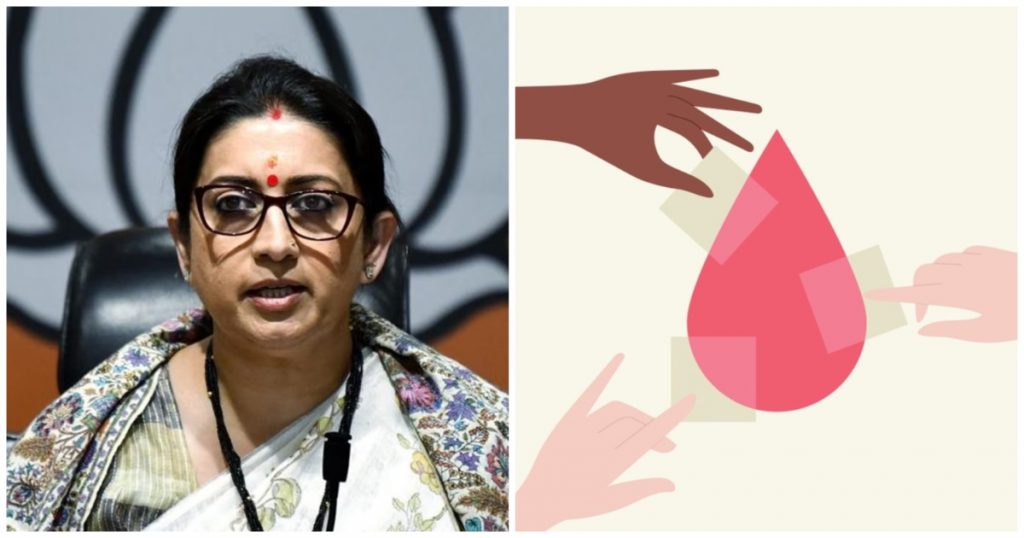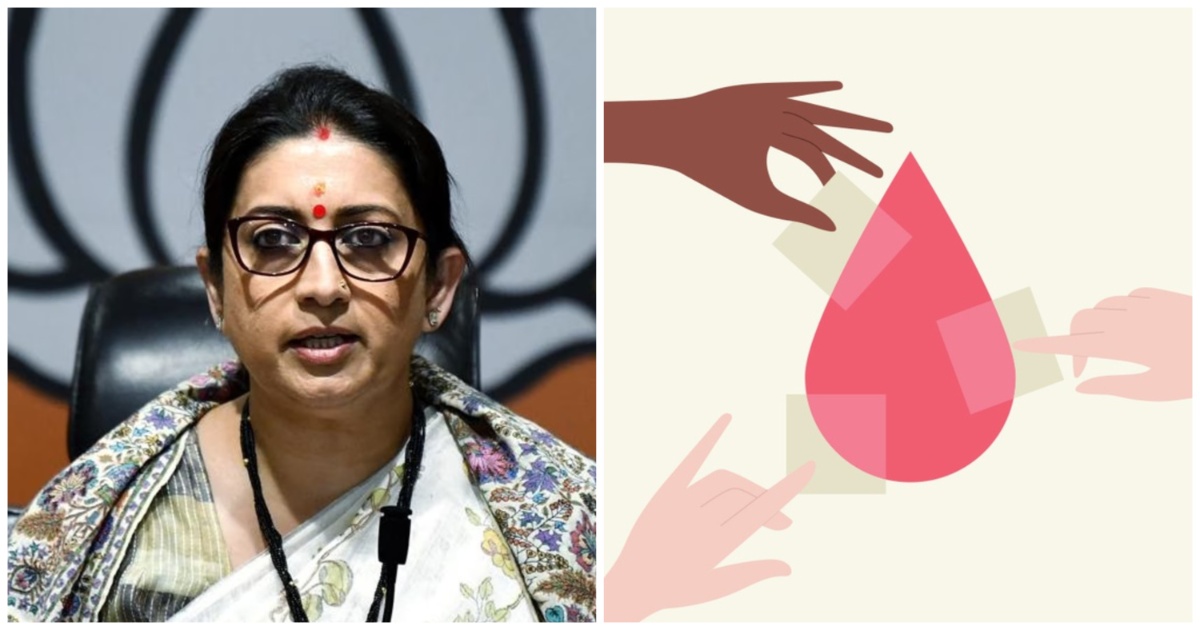Even as some Indian startups have begun offering women paid ‘period leaves’, the government has come out with a much more pragmatic take on the issue.
Union Minister for Women and Child Development Smriti Irani has opposed the idea of the government making compulsory provisions for employers to grant ‘period leaves’. She was responding to a question posed by Rashtriya Janata Dal (RJD) member Manoj Kumar Jha in the Rajya Sabha, which asked if the government would make such compulsory provisions for all companies in India.

“As a menstruating woman, menstruation and the menstruation cycle are not a handicap; it’s a natural part of women’s life journey…” Irani said. “We should not propose issues where women are in some way denied an equal opportunity just because somebody who does not menstruate has a particular viewpoint towards menstruation,” she added.
She further informed the Rajya Sabha that the Union Ministry of Health and Family Welfare has formulated a draft menstrual hygiene policy in consultation with stakeholders. The Centre already implements a scheme for the promotion of menstrual hygiene among girls in the 10-19 age group, she added.
Irani’s comments come at a time when some startups are toying with the idea of giving period leaves to women employees. In 2020, Zomato had granted 10 extra leaves to women employees every year, and these leaves could be availed by women once per menstrual cycle. Apart from Zomato, other companies including Swiggy, Byju’s, and Orient Electric have also begun offering period leaves.
But many people — including women — aren’t big fans of the idea. “Period leave” may be dressed up as progressive, but it actually trivializes the feminist agenda for equal opportunity, especially in male-dominated professions,” former NDTV journalist Barkha Dutt has said. “Worse, it reaffirms that there is a biological determinism to the lives of women, a construct that women of my generation have spent years challenging. Remember all those dumb jokes by male colleagues about “that time of the month” or PMS? Well, this idea only serves to emphasize that there is something spectacularly otherworldly about a bodily function,” she had added. Actress Kangana Ranaut also doesn’t support period leaves. “Unless it’s some specific medical condition. Women don’t need paid leaves for periods, please understand it’s periods not some illness or handicap,” she says.
And it’s perhaps for good reason — the effects of such affirmative action at times have been the opposite of what was intended. According to a survey by LocalCirclecs, 49% of early stage startups and small businesses said they had hired fewer or no women after the government had introduced a six-month paid maternity leave for women, citing the higher cost of complying with the policy. 33% startups said that they had hired the same number of women, while only 16% said they had hired more women after the 6-month paid maternity leave policy was introduced. If women employees are entitled to 10 extra days of leaves a year, that might cause companies to hire even fewer women employees, and prefer male employees instead.
And it might not be appropriate for the government to mandate period leaves for women in all companies across the country — while highly-funded startups can afford to absorb the productivity losses stemming from extra leaves, millions of smaller companies might not be similarly well-placed, and end up hiring fewer women employees as a result. But with the government now clearly stating that it doesn’t intend to make period leaves mandatory for all Indian companies, it would appear that this somewhat misplaced — and elitist — idea wouldn’t find widespread traction within the country in the near future.
